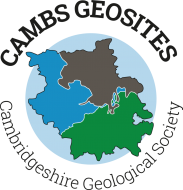‘I grew up in the Fenlands, a landscape shaped by the movement and management of water. Originally marshland, agricultural demand during the 1600s led to its artificial drainage for arable plots, though pockets of wetland persist today. This land has been incrementally changed by sea-level rise, human-made intervention and flooding; with a dynamic interplay between inundation and drainage, the land lies significantly below sea level, making it some of the lowest land areas in the United Kingdom. This constant push and pull between land and water has long informed my understanding of home.
It is from this awareness that the exhibition Joining Doggerland formed. Held at APT Gallery, London, from the 6th to the 16th of February 2025, this mixed-media group exhibition took its name from the lost land of Doggerland – a prehistoric plain once connecting Britain to mainland Europe, before warming climates led to its submergence – to raise urgent questions about what it means to hold steady in the face of environmental uncertainty; to act as committed witnesses to processes of loss and change across the UK.
As part of the exhibition’s public programming, I am co-organising a guided walk on the Fen Edge Trail through the village of Stretham. On Sunday the 4th of May, from 2 – 5 pm, we will traverse a landscape in flux – one that bears the markers of geological, agricultural, and social histories. Along the walk, we will visit Stretham Engine: once used to pump water from fenland marshes into the River Ouse, this historic drainage engine serves as a tangible relic of land management practices and their effects on the region’s pasts, presents and futures.
The walk acts as an invitation: to engage directly with the land, and to reflect on the possibilities still embedded within its evolving terrain. The Fenlands, like Doggerland before it, carries the weight of history. But within that history is also a reminder that landscapes, and the communities within them, are always adapting and finding ways to endure.’
Shannon Best






